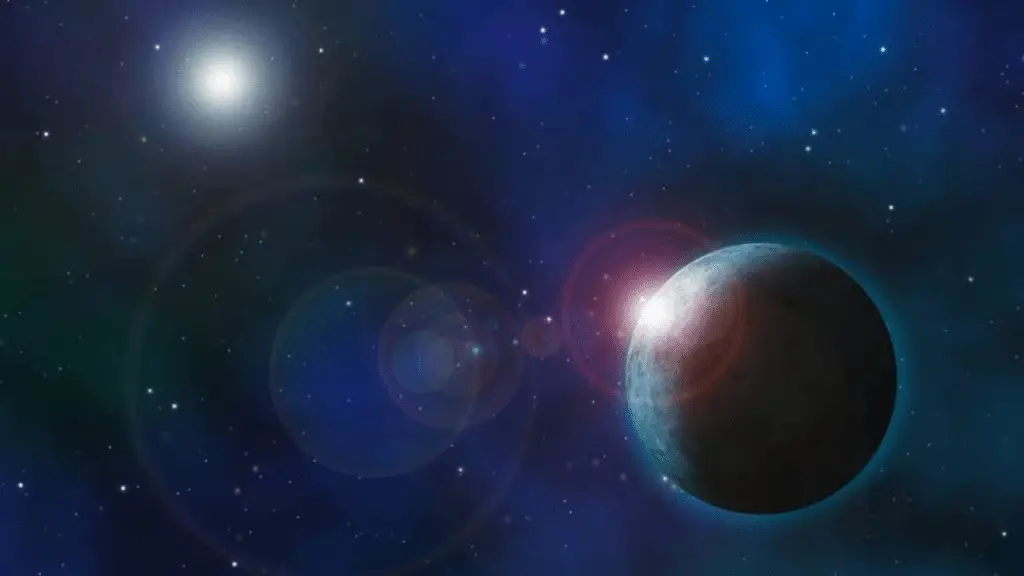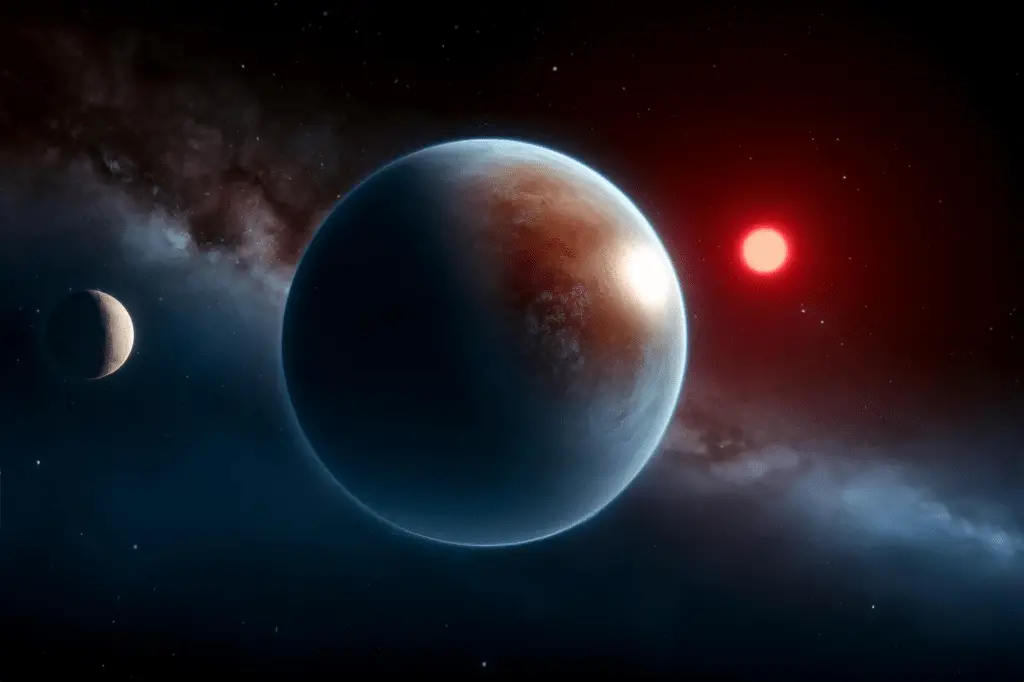The Universe is certainly a vast but also very mysterious place, full of wonders that challenge our understanding and stimulate our curiosity; among the most fascinating discoveries of the last decades are the exoplanets –including Gliese 12 b– worlds orbiting stars other than our Sun.
These planets offer a window to distant solar systems and allow us to explore the possibilities of life beyond Earth. Recentlya team of astronomers has made a remarkable discovery: Gliese 12 b, an icy world located in the habitable zone of a distant star.
The planet in question orbits a red dwarf star called Gliese 12, located about 40 light years from Earth in the constellation of Pisces. This exoplanet is similar in size to Venus, but with an estimated surface temperature of about 42°Cmaking it cooler than most exoplanets discovered so far.
Its location and its characteristics make it a ideal target for further studyespecially with advanced telescopes like the James Webb Space Telescope.
The habitable zone, often called “Goldilocks area”is the region around a star where conditions might be right for liquid water to exist on the surface of a planet.
This is a fundamental criterion for life as we know it, so the discovery of an icy planet in this area raises interesting questions about its composition, atmosphere, and potential to host life.
The discovery of Gliese 12 b is important for the search for habitable planets
The discovery of Gliese 12 b was made possible thanks to the combined use of two powerful instruments: the Transiting Exoplanet Survey Satellite (TESS) and the Characterizing Exoplanet Satellite (CHEOPS), telescopes that allowed astronomers to detect the planet as it transited in front of its star, a method that provides valuable information about its atmosphere and composition.

The possibility that Gliese 12 b may have an Earth-like atmosphere, or perhaps one entirely different, opens up new avenues for research. If the planet has an atmospherecould maintain temperatures suitable for the presence of liquid wateran essential element for life, however if its atmosphere is more similar to that of Venus, it could be subject to an uncontrolled greenhouse effect, making it inhospitable.
This discovery not only enriches our understanding of exoplanets, but could also provide crucial clues to how and why Earth and Venus, two planets in our solar system, followed such different evolutionary paths.
By studying Gliese 12 b, scientists hope to gain a clearer view of the processes that determine the habitability of planets and the conditions necessary for life.
Everything We Didn’t Know About This Exoplanet
The transit method is one of the most effective for the discovery of exoplanets, when a planet passes in front of its star, it causes a temporary decrease in the brightness of the star itself, and this phenomenon, observable with sensitive telescopes, allows astronomers to deduce the presence of a planet and to estimate its size and orbit.
In the case of Gliese 12 b, the transit revealed that the planet has similar in size to Venus and orbits its star every 12.8 days.
The habitable zone is a region around a star where conditions might be right for liquid water to exist on a planet’s surface, a key criterion for life as we know it. Gliese 12 b lies within this zone, making it a interesting candidate for further studies on its habitability.
As previously mentioned, the estimated surface temperature of 42°C suggests that it could have favorable conditions for the presence of liquid water, provided it possesses an adequate atmosphere.

The discovery of Gliese 12 b not only enriches our understanding of exoplanets, but could also provide crucial clues to how and why Earth and Venus, two planets in our solar system, followed such different evolutionary paths. By studying Gliese 12 b, scientists hope to gain a clearer view of the processes that determine the habitability of planets and the conditions necessary for life.
If you are attracted by science or technology, keep following us, so you don’t miss the latest news and updates from around the world!
#Gliese #Spectacular #Ice #Planet #Discovered